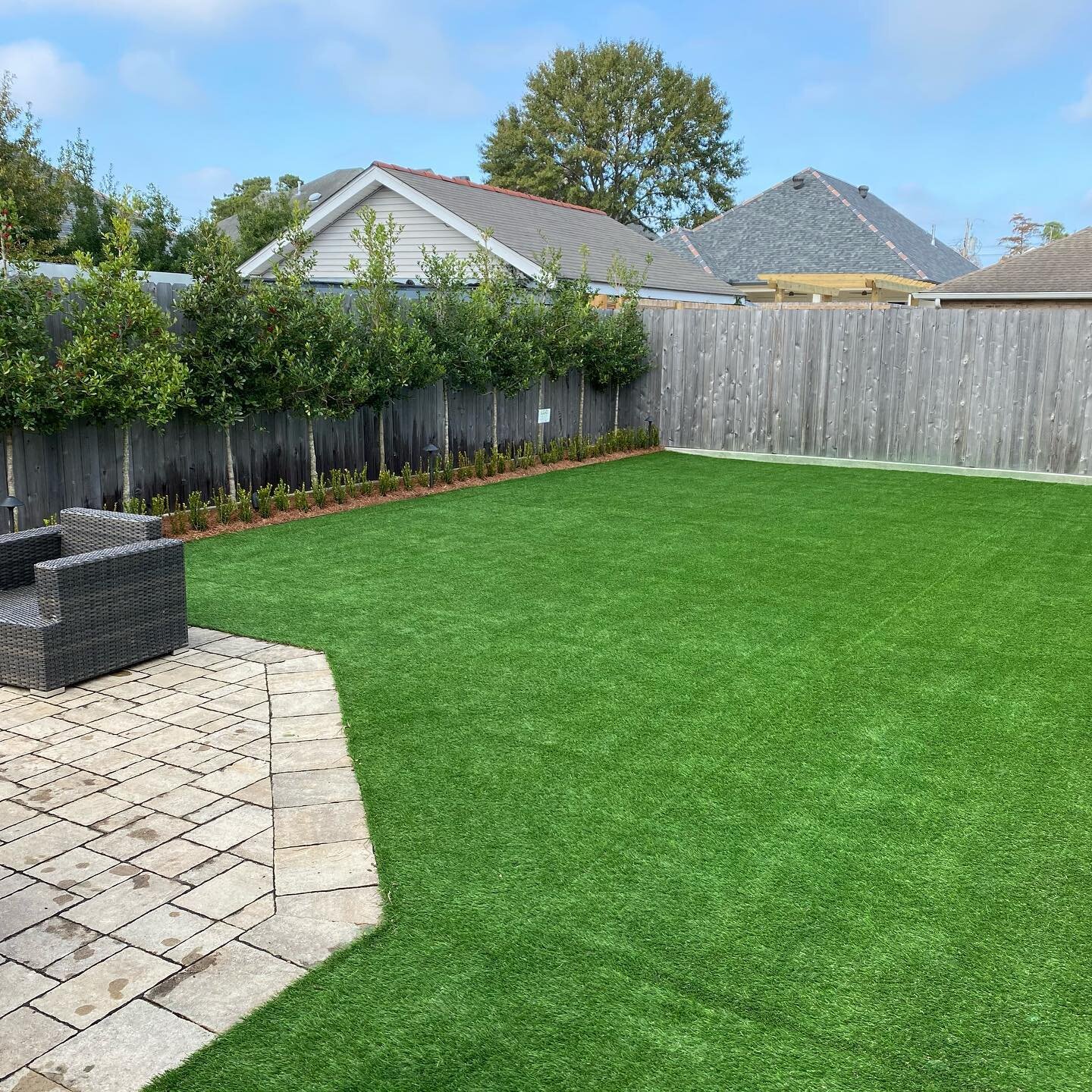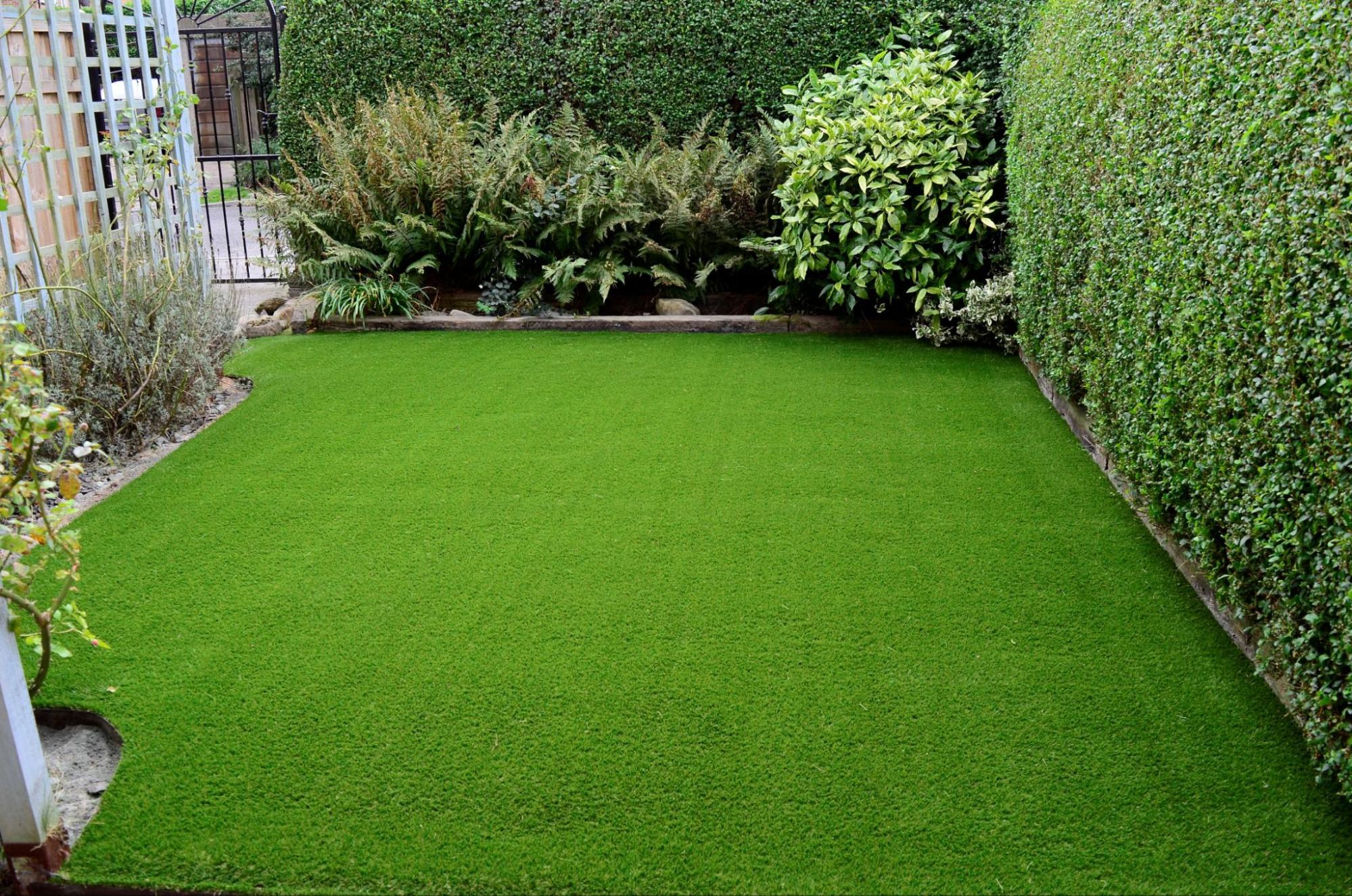Durable Arizona Artificial Turf for Residential and Business Applications
Durable Arizona Artificial Turf for Residential and Business Applications
Blog Article
Delve Into the Environmental Perks of Opting for Synthetic Grass Solutions
The fostering of synthetic lawn services offers an engaging chance to attend to pushing ecological challenges. By dramatically reducing water usage and reducing the application of harmful chemicals, these choices not just advertise sustainable landscaping but likewise secure neighborhood communities.
Water Preservation Conveniences
One of the most considerable advantages of man-made turf is its capacity to save water. In contrast, artificial grass does not require watering, significantly reducing the general demand for water sources.
By getting rid of the demand for regular watering, fabricated grass adds to lasting landscape practices and assists minimize the environmental effect of too much water intake. Furthermore, the preservation of water expands to the decrease of runoff, which can cause dirt erosion and waterway contamination.
In addition, the installation of man-made lawn allows property owners and municipalities to assign water sources much more successfully, concentrating on important usages such as drinking water and agriculture. The shift in the direction of synthetic turf not only promotes liable water use however likewise lines up with broader environmental goals intended at maintaining natural deposits.
As neighborhoods progressively prioritize sustainability, the water conservation advantages of synthetic grass provide a compelling instance for its fostering in domestic and commercial landscaping tasks.
Lowered Chemical Use
The shift to synthetic grass significantly decreases the reliance on chemical treatments commonly made use of in all-natural yard upkeep. Conventional grass administration commonly includes the application of chemicals, fertilizers, and herbicides to advertise growth and control pests. These chemicals can posture dangers to human wellness, local wildlife, and the setting, contributing to dirt and water contamination.
In contrast, man-made lawn eliminates the requirement for these harmful materials. By minimizing the release of synthetic substances right into the community, man-made lawn promotes healthier dirt and water systems.
Moreover, the lack of chemical drainage related to man-made grass installations assists shield local waterways from pollution, sustaining aquatic life and keeping biodiversity. Phoenix turf companies. As neighborhoods significantly prioritize lasting methods, going with fabricated lawn provides a feasible option that aligns with environmental preservation goals. Through this change, homeowner can enjoy lavish eco-friendly spaces without endangering environmental health and wellness, paving the means for a much more sustainable future
Reduced Carbon Footprint

In addition, the installment of synthetic grass can cause considerable water conservation. Natural grass need substantial quantities of water for watering, which not only adds to the carbon footprint connected with water extraction and therapy yet additionally pressures local water sources. On the other hand, artificial grass needs minimal upkeep, calling for no watering, thereby significantly lowering water use and its connected power site expenses.
In addition, the durability of synthetic grass adds to its reduced carbon impact. With a life expectancy of up to 15 years or more, the demand for constant substitutes is decreased, causing less waste and lower power usage in production and throwing away traditional grass alternatives. On the whole, fabricated lawn provides a lasting option for eco mindful landscaping.
Environment Conservation
Habitat conservation is a critical consideration in the argument over landscape design selections, specifically when contrasting fabricated lawn to all-natural lawn. Natural turf yards frequently require discover this extensive upkeep, including making use of herbicides, fertilizers, and chemicals, which can negatively impact local ecological communities. These chemicals can leach into the dirt and rivers, damaging native vegetation and fauna and disrupting neighborhood environments.
On the other hand, synthetic grass offers a possibility to minimize the eco-friendly footprint of landscaping. By choosing artificial turf, house owners can decrease the disruption of natural environments connected with conventional lawn care practices. Synthetic grass gets rid of the demand for dangerous chemicals, thus protecting neighboring wild animals and preserving the stability of surrounding environments. The setup of man-made grass can lead to the conversion of previous yard locations right into even more biodiverse landscapes, such as pollinator gardens or native plant areas, which can support neighborhood wild animals.
Eventually, the transition to fabricated turf not only conserves water and decreases maintenance initiatives yet additionally cultivates an extra unified relationship between human tasks and the natural surroundings, promoting environment preservation at the same time.
Long-Term Sustainability
Lasting sustainability is an important element in reviewing the advantages of man-made grass over typical lawn lawns. Among the most significant benefits of synthetic grass is its resilience; it can last approximately 15-20 years with marginal upkeep, whereas all-natural lawn calls for regular reseeding and replacement. This long life reduces the need for consistent resources, such as water, plant foods, and chemicals, which are crucial for keeping a healthy grass lawn.
Additionally, man-made lawn contributes to a decrease in carbon emissions connected with grass treatment tools. Standard grass often require gas-powered mowers, leaners, and blowers, every one of which contribute to air contamination. Turf installation phoenix az. In comparison, man-made turf gets rid of the demand for such tools, promoting a cleaner atmosphere
Additionally, the manufacturing of synthetic grass progressively utilizes recycled products, improving its sustainability account. As suppliers adopt eco-friendly practices, the ecological footprint of synthetic grass remains to lessen.

Verdict
The adoption article source of artificial turf services presents significant environmental advantages, including significant water preservation, lowered dependence on harmful chemicals, and a lower carbon impact. Furthermore, artificial turf help in maintaining all-natural habitats by reducing land disturbance and promoting lasting sustainability via the use of durable materials. Collectively, these elements emphasize the possibility of synthetic grass to add favorably to environmental wellness and use a feasible alternative to typical landscape design practices in an increasingly resource-conscious globe.
In comparison, synthetic lawn does not need watering, considerably reducing the total demand for water sources. By lessening the release of synthetic substances into the ecosystem, man-made turf advertises much healthier dirt and water systems.
Additionally, the installation of synthetic lawn can result in substantial water preservation. In comparison, synthetic turf requires minimal maintenance, calling for no watering, consequently considerably minimizing water use and its connected power costs.

Report this page